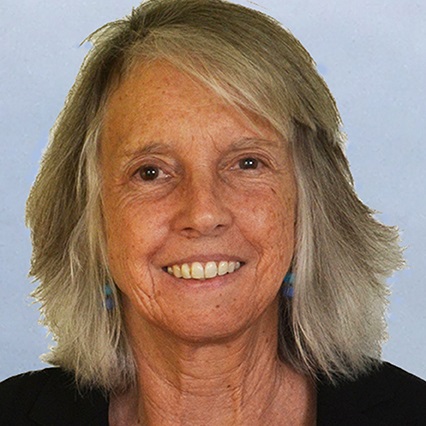The Hawaii Agricultural Mediation Program
About HIAMP
The Hawaii Agricultural Mediation Program (HIAMP) is the official United States Department of Agriculture certified agricultural mediation program for Hawaii. HIAMP provides free mediation services to the agricultural community to help resolve disputes before they end up in court. For background information about mediation; click here.
What Kind of Agricultural Issues Can Be Mediated for Free?
Assessments
Contracts, Farm Management, and Labor
Operating a farm requires overseeing general farm management issues as well as managing labor and contractual issues. When problems in these areas arise, the mediation program can help the parties discuss the issue in a constructive manner and develop mutually acceptable solutions.
Cooperatives
Credit Counseling
When finances are tight, farmers must make critical decisions about paying back farm loans, credit card companies, and lessors, while still meeting basic living expenses. Credit counseling can help farmers get an overview of their financial situation, including cash flow requirements, and develop a plan to work with creditors in order to maintain farm operations.
Crop Insurance
Crop damage due to pests or weather can be devastating, but crop insurance doesn’t always provide the relief expected by a farmer. Mediation can help farmers and insurance companies work out damage claims on USDA Risk Management Agency insurance policies.
Family Farm Transitions
Decisions about the long term future of a family farm can be financially and emotionally challenging. A neutral mediator can help farm families clarify changing roles and responsibilities, agree on financial terms, and navigate difficult conversations that often are part of family farm transitions.
Farm Credit/Debt Issues
Farm-related credit and debt issues can arise with feed or equipment dealers and credit card companies. Mediation can help work out lump-sum or monthly installment payment plans or other arrangements.
Farm Loans
Farm loans can provide crucial funding for farm ownership and operating expenses. Loan sources can include the USDA Farm Service Agency, Farm Credit banks, private banks, or even a friend or family member. If repayments have become a problem or changes are needed to the loan’s terms, a neutral mediator can help with loan modifications and repayments. Working with a mediator may also help address possible foreclosures.
Farmer-Neighbor Disputes
Disputes related to noises, odors, pesticide application or other issues can cause friction with nearby property owners. Mediation can help parties craft solutions to address concerns that arise from farming operations.
Leases (Land and Equipment)
Leases are important options for long term access to farmland, or for equipment use, but parties may differ in how they interpret the terms after the lease is executed. Conditions may have changed, or one side may be perceived as not living up to the bargain. Mediation can help parties negotiate the terms of new land and equipment leases and resolve conflicts with existing leases.
Organic Certification
Disagreements about organic certification or de-certification can have major impacts on market access. Mediation can help organic farmers and certifying agents focus on areas of contention to develop mutually agreeable solutions.
Pesticide Issues
Pesticide use is heavily regulated and can be contentious. Mediation can help parties address issues concerning pesticide application, enforcement, drift, buffers, and other issues.
USDA Farm and Conservation Programs
USDA farm and conservation programs often have complicated requirements that can include significant penalties for non-compliance. Farm or environmental conditions can change, making it difficult to meet planned objectives. Misunderstandings can arise about initial expectations or whether expectations have been met. Mediation can facilitate communication, help parties better understand each other’s perspectives, and resolve underlying issues. Mediation helps the farmer maintain control over final decision making.
USDA Rural Development Loans
USDA Rural Development loans also offer home ownership opportunities to low- and moderate-income rural Americans. When problems arise, mediators can help parties reach agreement on loan denials, modifications, and repayment plans.
Wetlands Determinations
Wetlands determinations can limit options for use of the land. If a farmer disagrees with a wetlands determination, mediation can be a useful process to bring experts into the process to ensure both sides agree on delineation of the wetland.
How Much Does Mediation Cost?
For other common questions about mediation, see our FAQ.
Steps To Request Mediation Through HIAMP
- Fill out and submit a Request for Mediation form.
- HIAMP staff will confirm that the other party (or parties) is willing to participate in the mediation.
- HIAMP staff will conduct brief confidential interviews to learn background information about the dispute.
- HIAMP will assign a mediator from the Agricultural Mediation Roster or HIAMP staff based on subject matter expertise, geography, and availability.
- The mediator will contact the parties to arrange a date, time and location for the mediation session.
Program Contacts
Matt Strassberg
Co-director
(808) 447-1790 ext 101
Jenna Muller
Co-director
(808) 447-1790 ext 104
Teya Penniman
Program Manager
(808) 447-1790 ext 108
Bring financial stability to your operation. See how ag credit mediation can help.
HIAMP Staff

Teya Penniman
Program Manager and Mediator
Teya is the HIAMP Program Coordinator. She is a mediator, facilitator, arbitrator, and attorney, with an interest in the intersection of agriculture and conservation. She worked with agricultural commodity boards in Oregon as an assistant attorney general and has collaborated with local and statewide agricultural groups during her time working on invasive species issues in Hawaii. She also writes and reports on local, regional, and international issues related to biodiversity, agriculture, and culture.

Jenna Muller
Co-director
Jenna Muller is a mediator, lawyer, and farm owner. She completed her legal training at the University of Michigan Law School. Her legal practice focused on corporate restructuring and business disputes. Jenna received mediation training from the Yolo Conflict Resolution Center and UC Berkeley. She has a Bachelor of Arts in International Development Studies from UCLA and worked on development issues in Brazil. In 2013, she became an owner of Full Belly Farm, a 450-acre organic, mixed-fruit and vegetable operation in Northern California. As a farm owner, she regularly interacts with state and local agencies and deals with organic certification requirements, buy/sell agreements, leases, and environmental and labor issues. She is familiar with the myriad challenges and opportunities facing family farms and agricultural businesses in California. Jenna lives with her husband and three children in the Capay Valley, near Sacramento, California.

Matt Strassberg
Co-director
Matt is an attorney and mediator with over thirty years of experience in environmental law and mediation. He was the founding director of Green Mountain Environmental Resolutions, a dispute resolution firm focused on developing collaborative solutions to environmental and land use disputes. He serves on the Steering Committee of the Coalition of Agricultural Mediation Programs and is listed on the roster of the US Institute for Environmental Conflict Resolution.
HIAMP Mediators

Peter Adler
HIAMP Government Liaison and Special Projects Coordinator
Peter S. Adler, Ph.D. is the Government Liaison and Special Projects Coordinator of the Hawaii Agricultural Mediation Program. Formerly he was President of The Keystone Center, which applies consensus-building and scientific information to energy, environmental, and health related policy problems. Peter’s specialty is multi-party negotiation and problem solving. He has worked extensively on water management, resource planning, agricultural issues, land planning issues, and marine and coastal affairs. Peter has held executive positions with the Hawaii Justice Foundation, the Hawaii Supreme Court’s Center for Alternate Dispute Resolution (ADR), and the Neighborhood Justice Center. He has served as President of the Society of Professionals in Dispute Resolution and has written extensively in the field of mediation, conflict resolution, and leadership.

Stephen G. Bess
Mediator
Steve is HIAMP’s mediator for the Big Island. His mediation experience spans 18 years and currently serves as a Director and Mediator for the West Hawaii Mediation Center. Steve’s agricultural experience includes working with the Hawaii Department of Agriculture, USDA and NRCS. Steve is a trustee of a working cattle ranch. He received his professional mediator training at Harvard University and ombudsman training from the International Association of Ombudsman. His expertise includes the mediation of foreclosure disputes and serving as Commissioner for land sale foreclosures, Third Circuit Court. Steve is experienced in matters relating to land use (agriculture and urban), water, eminent domain and public policy. He has served as Hawaii County’s Corporation Counsel and is currently engaged in the private practice of law.

Mahi Hiatt
Mediator
Mahi’s roots in Hawaiʻi go deep – born and raised on Oʻahu, summers spent on Maui with her Tutu and Grandpa, and living on the Big Island since 1998, where she and her husband plant and grow Koa, Sandalwood and ‘Ōhiʻa lehua trees on their family property. She is a proud graduate of the Kamehameha Schools, Kapālama, and the William S. Richardson School of Law, University of Hawaiʻi at Mānoa.
Prior to becoming a Per Diem Judge and then District Family Court Judge in the Third Circuit, her legal practice involved complex civil litigation, including land use and real property issues, with a strong emphasis on mediating and arbitrating the disputes. Currently, she is in private practice as a neutral – with a focus on serving as a mediator and arbitrator in commercial and family matters.
Mahi also serves as a volunteer mediator with the West Hawaiʻi Mediation Center and the Hawaiʻi Appellate Mediation Program, as well as a volunteer arbitrator with the Court Annexed Arbitration Program, Third Circuit. She has received formal mediation training from the Pepperdine Straus Institute for Dispute Prevention & Resolution in California and the WHMC and recently completed a Mediation Master Class with the Mediation Center of the Pacific.

Elizabeth A. (“Betsy) Strance
Mediator

Norman Piianaia
Mediator
“No fight, no blame” so “Make hay while the sun shines” –
attributable to Lao Tsu and John Heywood’s A dialogue continuing the number in effect of all the Proverbs in the English tongue, 1546.
CASE STUDIES
The above case studies are either compilations of cases with similar facts or include changes to minor details to protect the confidentiality of the mediation process and the privacy of the parties. Photos of farms and or farmers are used for decorative purposes. These farms and farmers were not involved in the above case studies.
Testimonials
The dedication of Agricultural Mediation Program mediators and their ability to get all the necessary parties willing to work together constructively made it possible to reach a positive outcome in a case where it didn’t seem likely.
I tried to resolve my dispute on my own for 18 months but was shot down on every avenue I tried. Once we got into mediation, they really started to listen to me for the first time and we were able to resolve the dispute quickly.
The mediation enabled the parties to communicate their interests clearly and effectively and reach a resolution quickly that was acceptable by all parties. I felt really good about how the mediation was conducted and would use Agricultural Mediation Program’s services again.
STAY CONNECTED
Program Contacts
Matt Strassberg
Co-director
(808) 447-1790 ext 101
Jenna Muller
Co-director
(808) 447-1790 ext 104
Teya Penniman
Program Manager
(808) 447-1790 ext 108
